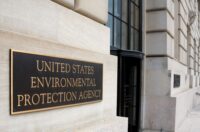EPA Enforcement Roundup Q2 2024
In the second quarter (Q2), the EPA finalized 388 settlement agreements with companies small and large across the United States. This represents a large increase in enforcement actions—up from 235 penalties—issued in Q1 for 2024. The actions taken resulted in $11,061,445 in fines. Here are some of the highlights. CAA violations yield biggest fine from […]









